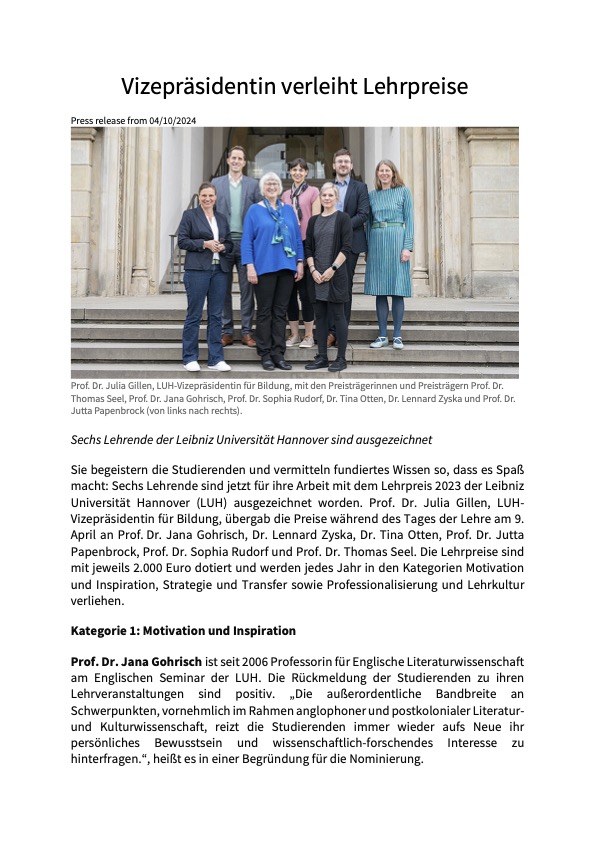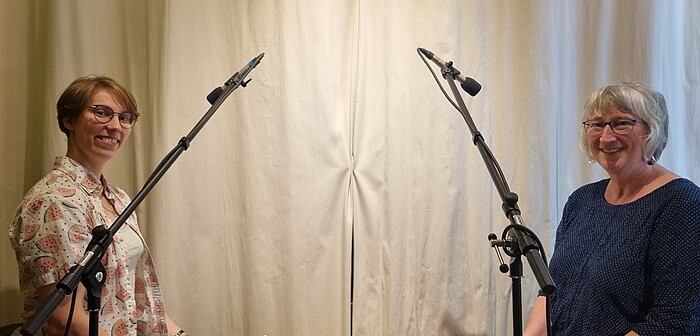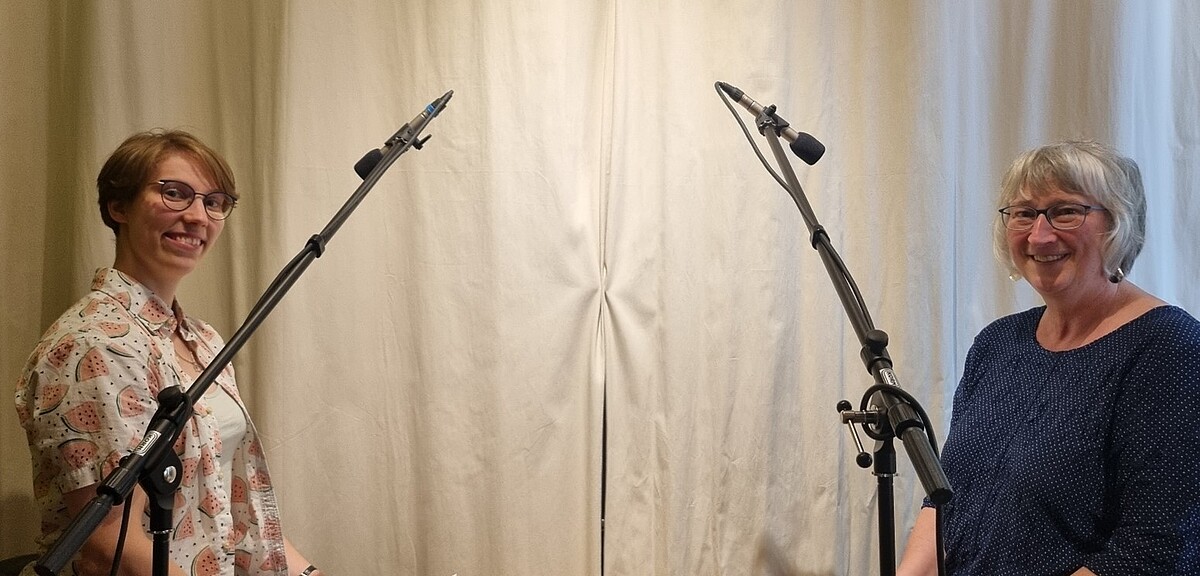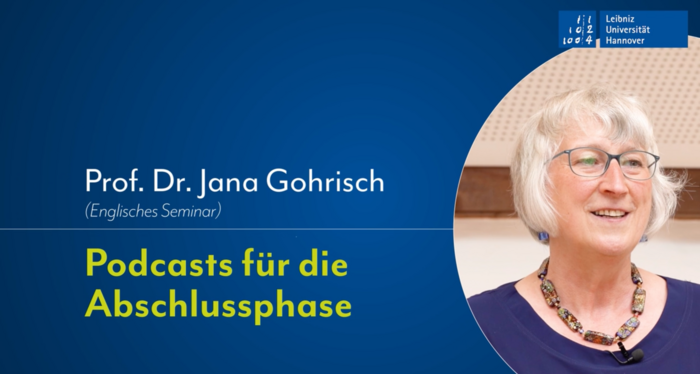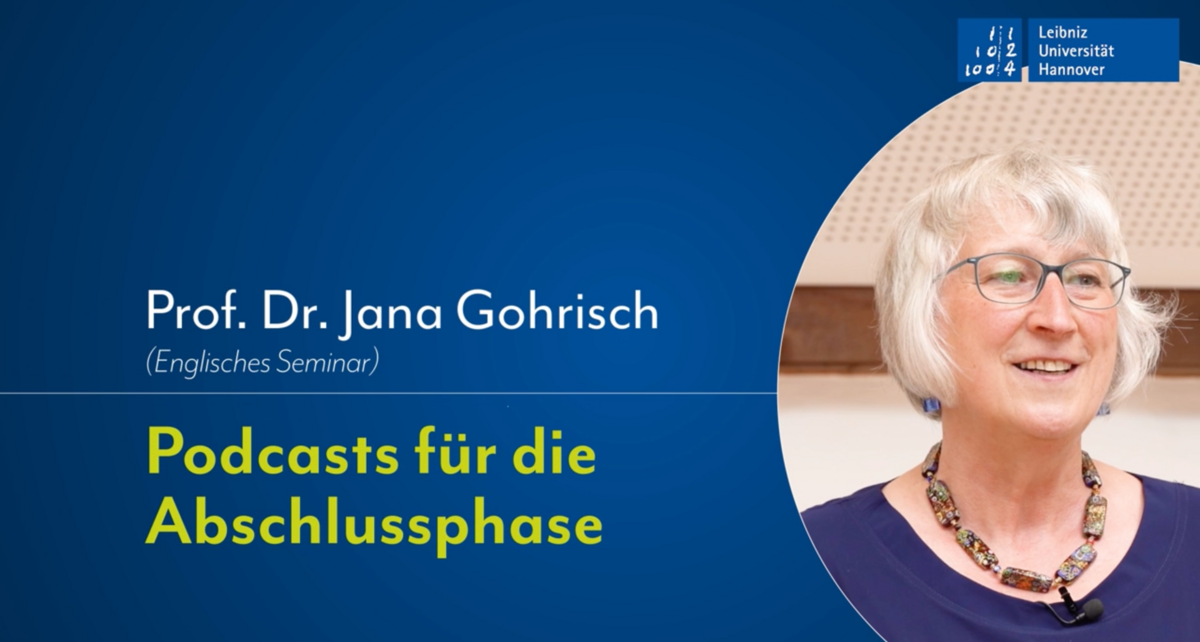British and Postcolonial Studies
The department of British and Postcolonial Studies pursues a broad cultural studies approach with a special focus on postcolonial issues. We offer courses on British literature of all genres from the 16th to the 21stcentury, on Anglophone writing from West and South Africa, the Caribbean and India, Australia and New Zealand, Canada and Ireland as well as those of the African and South Asian diaspora in Great Britain. It is particularly important to us to systematically instruct students in the theories and methods of literary and cultural studies. On this basis, we practice how to analyse artistic shape inviting students to appreciate the innovative power of literature, visual art and film in their respective historical and social contexts.
The booklet Guidelines and Reading Material in British and Postcolonial Studies explains the essential study skills and gives detailed information on non-graded and graded coursework (Studien- und Prüfungsleistungen). The individual guidelines describe how to find a topic and how to develop a corpus for a term paper or a final paper, how to formulate and refine research questions and thesis statements, how to structure a paper as well as how to do academic research using both digital tools and printed sources. As part of our student-oriented service, we also provide two portfolios with a selection of exemplary term papers and bachelor's theses along with their anonymised evaluation sheets and reports. The Guidelines conclude with a reading list suggesting Anglophone and British literary texts for term papers and final papers.
BritF2-Survey: Exam Dates and General Information
The exam for the Module Intermediate British Literature and Culture is the written exam for the Survey Lecture British Literatures and Cultures (BritF2).
The exam takes place twice a year: in February and August.
The next exam takes place on 21 August 2025 at 10.00 hrs. The venue is Schloßwender Straße 1, room 105.
- Please register with the Exam Office between 15 and 31 May 2025.
- The exam is a paper pencil-exam. Please bring a black or blue pencil.
- You receive 40 questions to be answered in 60 minutes.
- There are two types of questions: multiple-choice and matching.
- You will pass if you answer 20 out of 40 questions correctly.
- In accordance with the exam regulations, grading follows 2-point steps, i.e. 22 correct answers = 3,7; 24 correct answers = 3,3; etc.
- You will receive the results of the written exam at the end of August 2025.
- In case you withdraw from the exam in August 2025, you can sit the exam on 19 February 2026. Please register again with the Exam Office (registration period: November 2025).
A tutorial will be offered by Johanna Neumann, which starts 3 June 2025 and lasts until 21 July 2025. The sessions take place tuesday at 18.00 hrs until 20.00 hrs. The venue is Conti-Hochhaus, room 703.
Gohrisch & Gohrisch Podcast
how to complete a degree course in English

GOHRISCH & GOHRISCH PODCAST II
how to complete a degree course in English
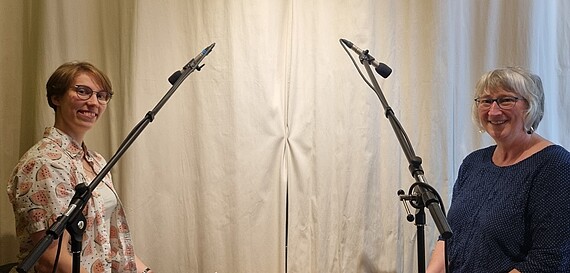
- Part 1: The Finished Degree Course
- Part 2: The Working Process: Methods
- Part 3: The Working Process: Reflection
- Part 4: The Working Process: The Theoretical Concept of Class
- Part 5: The Function of a Final Paper
Teach & Tell
Videoportraits als Inspiration für die Lehrpraxis
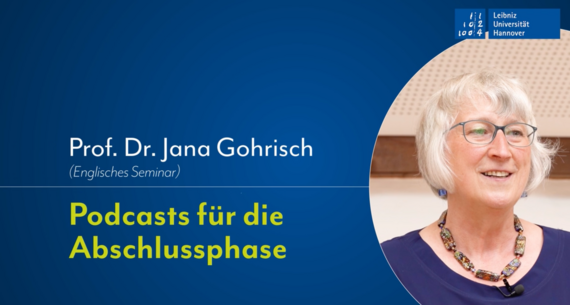
Podcasts für die Abschlussphase
Wann ist der richtige Zeitpunkt gekommen, das Studium abzuschließen? In ihrem Podcast gibt die Lehrpreisträgerin Prof. Dr. Jana Gohrisch Studierenden Tipps für ihre Abschlussarbeit. Sie berichtet, wie sie darauf gekommen ist, einen Podcast zu produzieren und gibt Tipps, worauf Lehrende hierbei achten sollten.
https://www.uni-hannover.de/de/studium/lehre/inspiration-und-erfahrung#c147754
Out Now
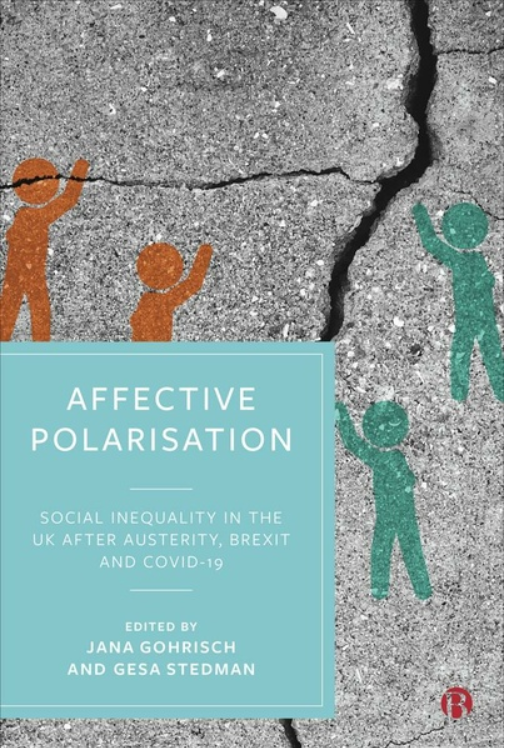
Inequality is an ever-present danger in our society. This important book addresses the crucial nexus between the lived experience of inequality and how it shapes political responses.
With contributors from the UK and Continental Europe, the book compiles case studies with theoretically informed discussions of the relationship between affective polarisation, social inequality and the fall-out from Brexit and COVID-19. Using a broad concept of social inequality, the book incorporates aspects of economy and society, language, and emotion culture, as well as interviews and film in historical and transnational perspectives.
The contributors offer a powerful examination of the ways in which the politics of the UK and the lived experiences of its residents have been reframed in the first decades of the 21st century.
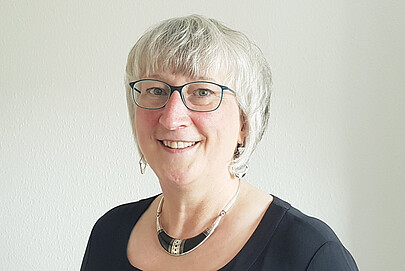
Lehrgebietsleitung Anglistik | British and Postcolonial Studies
30167 Hannover

Lehrgebietsleitung Anglistik | British and Postcolonial Studies

British and Postcolonial Studies
30167 Hannover

British and Postcolonial Studies

British and Postcolonial Studies
30167 Hannover

British and Postcolonial Studies





